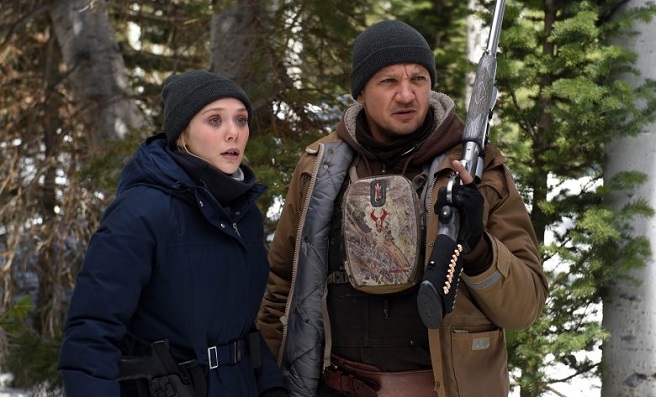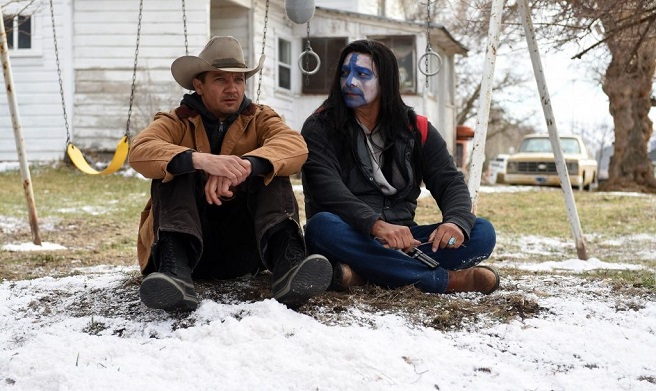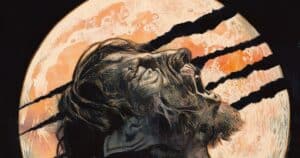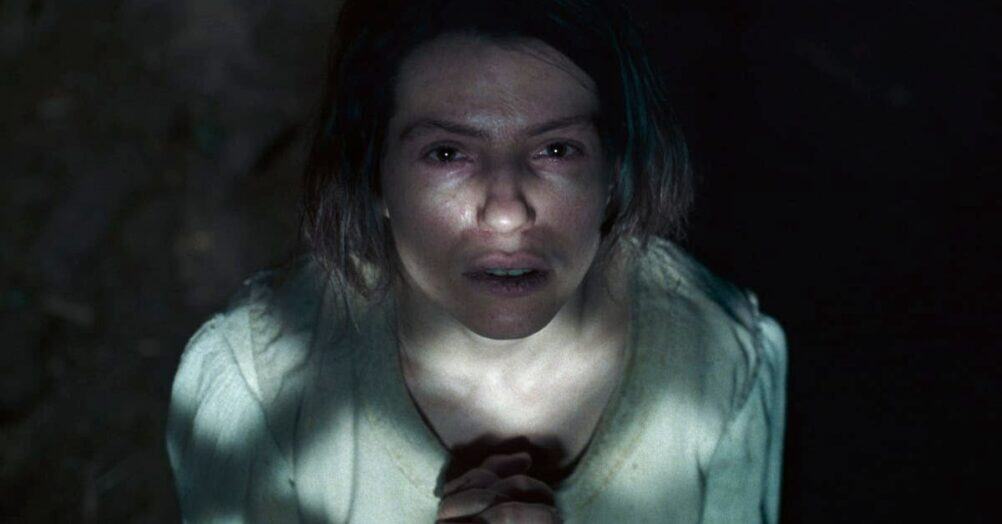Last Updated on July 30, 2021

PLOT: A U.S. Fish & Wildlife tracker (Jeremy Renner) presiding over the Wind River Indian Reservation in Wyoming must aide an inexperienced FBI Agent (Elizabeth Olsen) when a young Native girl is found dead in the snow.
REVIEW: WIND RIVER is one of the best movies of the year. Indeed, the third leg in Taylor Sheridan’s American Frontier triptych, behind SICARIO and HELL OR HIGH WATER, has the added benefit of nary a middle man to filter the material through. That is, by directing it himself, his second feature behind the 2011 horror film VILE, there’s a more direct umbilicus to the topical themes he wanted to explore and the manner of actually realizing them onscreen. The result is a nothing short of a tour-de-force in storytelling, an undeniable directorial masterstroke featuring a career performance by Jeremy Renner. Recommendations can’t come high enough, as this movie successfully operates on multiple levels of entertainment. WIND RIVER is a threnody for the dead, a four-part harmony that reverberates as a trenchant treatise on White-Native relations – a somber, soulful, sobering elegy to grief – a frigid, frostbitten thriller with a well of warm-blooded wisdom under the surface – and a personal, character driven investigative procedural. It’s everything Season 2 of TRUE DETECTIVE should have been!

Winter in Wind River, Wyoming. The acreage is high, the population is low, the snow is immovably dense. Cory Lambert (Renner) is an expert predator tracker, living on the Native American Reservation and working as U.S. Fish & Wild Life protectorate. From the opening scenes, we sense he’s a man who’s endured more than most. Renner wears the scars and wisdom on his face like a badge – beleaguered, bedraggled – a man at peace with what he knows about life and death. For out in Wind River, one only survives or surrenders, luck knows no place. When a young native girl named Natalie (Kelsey Asbille) is found dead in the snow – raped and bloodied – Lambert is reluctantly tasked with helping the novice, understaffed FBI agent Jane Banner (Elizabeth Olsen), who has been sent alone from Las Vegas, to figure out what happened to Natalie, who did it and why. See, this is not just another dead girl found out in the middle of nowhere. Since the population is so sparse, the communities are tight, and it turns out, Natalie was the best friend of Renner’s teenage daughter Emily. Therefore, the search is personal.
In fact, far more personal than you may think. We won’t betray too much, but despite Cory being divorced from his Native wife Wilma (Julia Jones), he’s quite a good father to his young son Casey (Teo Briones), a concerning friend to Natalie’s parents Martin (Gil Birmingham) and Mrs. Hanson (Tantoo Cardinal) and at work, a skillful hunter in his own right. With the help of local sheriff Ben (the brilliant Graham Greene), we begin to pick up small clues and gather tiny hints as to what happened to Natalie. We also come to know how personal the case is for Lambert, and how, if solved properly, it may actually offer himself a modicum of therapeutic solace, if not direct revenge. He’s lost a lot already, but has the world to gain. And without even a single word, Renner beautifully illustrates this disposition. The humility of pain and the insight it ultimately affords is something Lambert carries at all times, and Renner hits every soulful virtuosic note on the scale. It’s his best performance since THE HURT LOCKER, one I found even more moving.
But the single greatest aspect of WIND RIVER for me is its masterful storytelling. Indeed, what better way to tell an investigative crime mystery than to allow the audience to be quasi-complicit in the detection? That’s what Sheridan has done here. By spewing out drips and drabs of non-expository information – often through a simple word here, a line there – it’s almost as if we become partners of Ben and Lambert en route to solving the case. I once heard Sheridan during one of those Awards roundtables last year for HELL OR HIGH WATER, and I recall him saying he was allergic to exposition. Well, it shows, and the way in which his scripts relay information without sweeping monologues or grand last-minute revelations make all the difference when it comes to compelling, well-written storytelling. In WIND RIVER, it’s the characters that determine the plot, not the other way around, and it’s one of the reasons why the film has such a profound impact when it ends. The movie opens with a poem written by one character, and by the end, we can’t help but marvel at the pure poetic justice afforded to the rest, Lambert in particular.
Subtextually, one can’t help but notice the interplay between the white man and the continually marginalized Native American population. Based on actual events, the movie rightly decries the fact that missing person stats are not held for Native women. At all. Not one. The movie isn’t preachy in this regard, but the way in which Sheridan touches on it, sheds light on such inherent darkness, is just another way in which the characters and plot perfectly commingle. In unraveling the movies mystery, we learn a lot about the plight of First Nations people, a worthy lesson learned under the guise of an expertly crafted thriller. Even the reason why a lone FBI agent is dispatched to Wind River, without backup, is so properly motivated to serve both plot and character that we can’t help but believe it. The whole movie is like that, steeped in a stark realism without a shred of artifice. Even when the third act erupts in a volcanic bout of shootout violence, we earned our way there, and it feels utterly germane to all that proceeded. As it sounds, WIND RIVER is au naturale!

Honestly, it’d be easy to say if you dug SICARIO or HELL OR HIGH WATER, then you’ll certainly not be let down by WIND RIVER. But it’s even simpler than that. If you’re a mere fan of great movies, then WIND RIVER is definitely the one to go and see this August. It’s not only the perfect antidote to the big, dumb summer blockbusters – WIND RIVER has a wise and winsome spirit under its frigid, frostbitten façade. As a storytelling exemplar, with its topical import and career turn from Jeremy Renner, this is clearly one of the best movies of the year!




















Follow the JOBLO MOVIE NETWORK
Follow us on YOUTUBE
Follow ARROW IN THE HEAD
Follow AITH on YOUTUBE